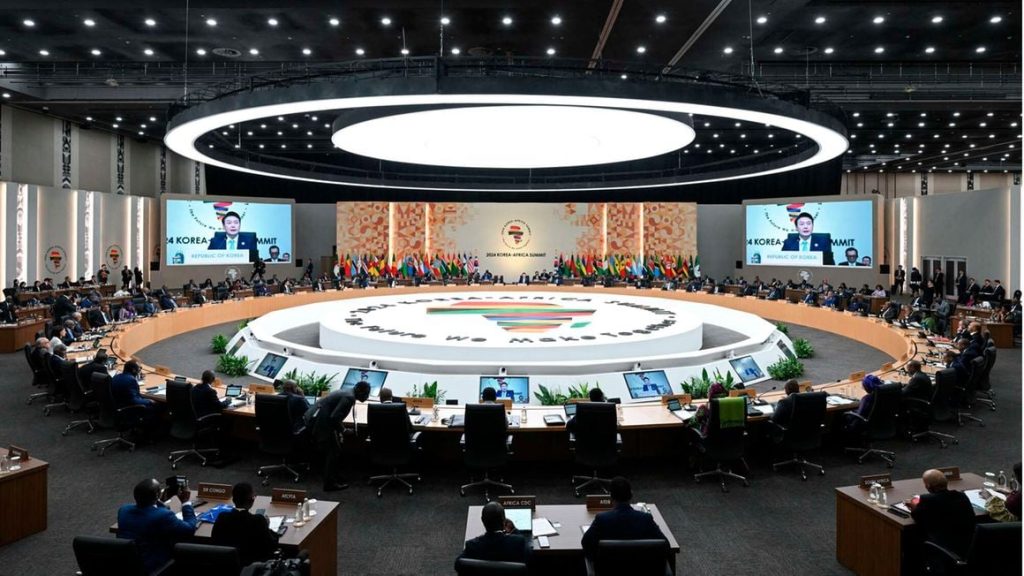In a significant shift for South African politics, the African National Congress (ANC) has lost its majority in a landmark election held recently, marking the first time since the end of apartheid 30 years ago that the party will not hold an outright majority in Parliament.
With over 99% of the votes counted from Wednesday’s parliamentary election, the ANC garnered just over 40% of the total, a substantial decline from the majority it has maintained since the 1994 elections that brought Nelson Mandela to power. Although the official results are set to be declared by the Independent Electoral Commission on Sunday, it is clear that the ANC will not reach the 50% mark, signaling the start of a new era of coalition governance in South Africa.
This election result highlights the ANC’s erosion of support amid growing discontent over deep-rooted poverty, widespread unemployment, and significant service delivery failures, including access to clean water and electricity. South Africa is grappling with one of the highest unemployment rates globally, with over 32% of the population without jobs.
To remain in power, the ANC will likely need to seek coalition partners to reelect President Cyril Ramaphosa for a second and final term. The Parliament must convene to elect the next president within 14 days of the election results announcement.
The leader of the main opposition party, the Democratic Alliance (DA), John Steenhuisen, expressed that breaking the ANC’s majority is a critical step toward rescuing South Africa. Meanwhile, Julius Malema, head of the Economic Freedom Fighters (EFF), stated that the ANC’s long-standing dominance is now over.
However, the path forward for South Africa’s economy appears complicated, as there is currently no clear coalition agreement in place. Several opposition parties, including the DA and new entrants like the MK Party, formed by former President Jacob Zuma’s supporters, are among those with whom the ANC could negotiate.
The DA received around 21% of the vote, while the MK Party secured over 14%, marking a significant entry into the political arena. The EFF came in fourth with slightly over 9%. The electoral landscape is crowded, with more than 50 parties contesting the election, but the DA, MK Party, and EFF are likely to be the primary contenders in coalition discussions.
Electoral commission Chairman Mosotho Moepya called for calm and urged leaders to guide their constituents through this transformative time. Steenhuisen indicated that the DA is open to dialogue with the ANC, while the MK Party has stated that any agreement would necessitate Ramaphosa stepping down as ANC leader. This reflects ongoing tensions stemming from Zuma’s controversial presidency, characterized by corruption allegations.
The MK Party and EFF have advocated for significant nationalization of economic sectors, while the centrist DA is perceived as more business-friendly, potentially appealing to foreign investors. Analysts suggest that a coalition between the ANC and the DA would be welcomed, but some express skepticism about the viability of such an alliance.
As the election results settle, ordinary South Africans are approaching this political shift with cautious optimism. While there are no celebrations on the streets, there is a shared recognition that change is necessary in a nation marked by deep inequality and persistent issues, including a staggering unemployment rate and high crime levels.
The ANC has faced declining support over the last two decades, and this election saw its share drop by 17 percentage points from the 57.5% it received in 2019. Voter turnout was expected to hover around 60%, with nearly 28 million South Africans registered to vote. Many voters braved cold winter nights, waiting in long lines that sometimes extended past official polling hours, eager to participate in this pivotal election despite some voting stations facing delays due to power outages.
As South Africa navigates this unprecedented political landscape, the need for effective governance and social reforms has never been clearer. The coming weeks will be critical in determining how the new political dynamics will shape the future of the country.























